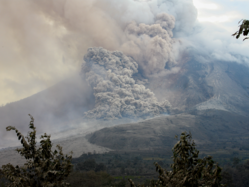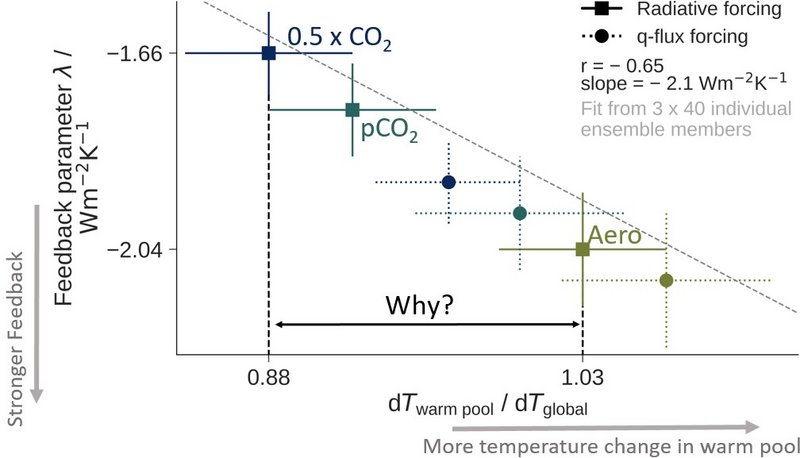Moritz Günther
| Department | Climate Dynamics |
| Group | Director's Research Group (CDY) |
| Position | Postdoc |
| phone | +49 40 41173-176 |
| moritz.guenther@mpimet.mpg.de | |
| Room | B 315 |
Research
Under climate change, not all places on Earth warm or cool equally fast, and the pattern of these surface temperature changes controls important aspects of atmospheric circulation and cloudiness ("pattern effect"). Most importantly, the temperature pattern influences the climate feedback parameter and therefore climate sensitivity, i.e., how much Earth changes its temperature in response to radiative perturbations.
In my research I explore the formation of patterns of sea surface temperatures, as well as their consequences for feedbacks and climate sensitivity.
My current research is aimed at understanding the evolution of the pattern of surface temperatures in the future, because it critically influences how much the Earth will warm in response to greenhouse gases. Will the currently observed pattern of strong Western Pacific warming continue, or will it, as suggested by an extensive body of literature, switch to Eastern Pacific warming? If there is a transition, when will it happen, and which processes determine its time scale? Specifically, how do energy flux differences over land and ocean affect the general circulation, and how do these circulations impact the temperature pattern?
In my PhD thesis, I explored the pattern effect in the aftermath of volcanic eruptions. Large volcanic eruptions can add reflective aerosol to the stratosphere, which cools the Earth for a short time (~years). I showed that different patterns of surface temperatures arise in response to forcing from stratospheric aerosol than in response to CO2 forcing. I explained the origins of these differences, which involve the stratospheric overturning circulation (Brewer-Dobson circulation) and its effects on the troposphere. Furthermore, I showed how the pattern differences explain why a certain radiative perturbation (in W/m2) from stratospheric aerosol leads to a smaller global mean temperature change than a radiative perturbation of the same magnitude from CO2.
- Google Scholar
- CV (last updated on 16 July 2025)
- PhD Thesis: Asymmetries between the climate responses to CO2 and stratospheric aerosol forcing
- Twitter (@MoritzGnther7)
- Mastodon (@moritzguenther@mastodon.world)
- Github (moritz-g): Parts of my code are available on github. All publications of which I'm first author contain a link to the underlying code and, as far as I own the rights, the data / model output.

A puzzling temperature pattern in the tropical Pacific
Currently, climate change in the tropical Pacific is unfolding in a way that climate researchers did not expect. But the working group of Sarah Kang, Director at the Max Planck Institute for Meteorology, is already on the path to solving this puzzle.
Climate feedback to stratospheric aerosol forcing: the key role of the pattern effect
In a recent study Moritz Günther, Hauke Schmidt, Claudia Timmreck (all MPI-M), and Matthew Toohey (University of Saskatchewan) argue why the cooling following large volcanic eruptions is smaller than what one might expect from simple energy balance arguments.



